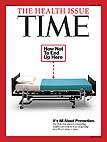Time Magazine has an article entitled Facebook and Divorce dated June 22, 2009 touting the relationship between Facebook and other social networking media and divorce litigation. As the age of online-social-network users creeps up, it overlaps more with the age of divorce-lawyer users, resulting in the kind of semipublic laundry-airing that can turn aggrieved spouses into enraged ones and friends into embarrassed spectators, states the article by reporter Belinda Luscombe.
The article suggests five no no’s for divorcing couples as it relates to social media:
- Pictures or discussions of new purchases or vacations are fun, but they might color
 the court’s view of your finances and affect your settlement.
the court’s view of your finances and affect your settlement. - If you’re in a custody battle your ex’s lawyers would love to present you as the non-nurturing type. Don’t post crazy party pics.
- It’s not just your page you have to worry about. Make sure your friends’ photos of you can’t be used against you either.
- Don’t talk smack about the lawyers, the judge, and especially your spouse on your page or anyone else’s. (You think your kids never use a computer?)
- Don’t "de-friend" in-laws or your ex’s friends right away. People need time to adjust. Unless it’s really high conflict. Then go for it.
The article goes on to say:
Lawyers, however, love these sites, which can be evidentiary gold mines. Did your husband’s new girlfriend Twitter about getting a piece of jewelry? The court might regard that as marital assets being disbursed to a third party. Did your wife tell the court she’s incapable of getting a job? Then your lawyer should ask why she’s pursuing job interviews through LinkedIn.
Battles over finances and custody remain the Iwo Jima and Stalingrad of divorce cases. Opposing lawyers will press any advantage they have, and personal information on sites like Facebook, MySpace and LinkedIn is like decoded bulletins from enemy territory.
Half the fun of social-networking sites is the posting of personal news. The other half is the posting of personal opinion, something spurned spouses typically have in spades. MySpace and its ilk offer the giddying cocktail of being able to say something in the privacy of your home that will be publicly accessible, along with a chaser of instant gratification. All this at a time when people are often less than their best selves. On the walls of two Facebook groups — I Hate My Ex-Husband and I Hate My Ex-Wife, which together had been joined by 236 Facebook users as of early June — posts include all manner of (often misspelled) vitriol, including some colorful British slang: "my husband is … a dirty smelly chavvy theivin alcoholic drug addict selfish scum bag" and "my ex wife is a no good lieing slag," each of which was posted alongside a smiling photograph of the commenter.
There’s little the besmirched can do legally, unless there are children involved. Family-law courts routinely issue restraining orders to prevent one parent from disparaging another to a child. "The question is, If it’s on the Internet, can that speech be blocked?" says Stephen Mindel, a managing partner at Feinberg, Mindel, Brandt & Klein in Los Angeles. "The First Amendment is going to come into conflict with the family-law courts."
It seems everybody — except perhaps some lawyers — would be better off if divorcing spouses gave each other some space on MySpace. But when confused, anguished people look for ways to work through their feelings, a social-networking site can be an almost irresistible venue.
In my Dallas divorce cases, I’ve had issues regarding social media come up. In one case, I represented a mother seeking to show the father’s job history to support the argument that the father should pay retroactive child support over the past history of the child’s life. I found the father’s LinkedIn profile and used his job history posted on there as evidence.
I also represented grandparents who had custody of their granddaughter in a suit for access filed by the child’s father. I found the father’s MySpace page where listed that he had no children and lied about his education and other qualities and used that as evidence against him as to why his access to the child should be supervised.
Shout out to Barbara Glesner Fines of the Family Law Prof Blog for pointing out this article.



